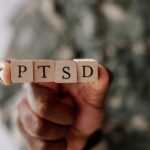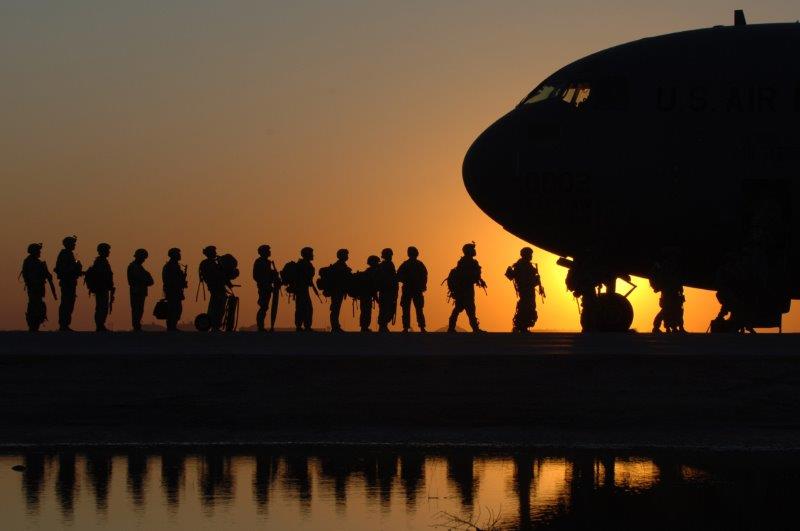First responders are the brave men and women who are first on the scene when emergencies and disasters strike. They courageously put themselves in harm's way to save lives and provide critical assistance to people in need. First responders are an essential part of our communities, and it's important to recognize the vital role they play and the sacrifices they make. In this blog post, we'll take a closer look at who first responders are, the challenges they face, and why we should appreciate these everyday heroes.
Key Takeaways:
- First responders include police officers, firefighters, EMTs and paramedics who respond quickly to emergencies.
- They make selfless sacrifices and risk their lives to serve and protect their communities.
- Their jobs are demanding yet rewarding and require special skills like remaining calm under pressure.
- First responders face dangers, trauma, mental health impacts, and other on-the-job hazards.
- We should honor, recognize, and provide better support and resources for these brave men and women.
Defining First Responders and Their Vital Roles
The term "first responder" refers to the first people to arrive and provide assistance at the scene of an emergency. First responders typically include:

Police Officers
Police officers along with other law enforcement personnel are often the first emergency personnel to arrive at the scene when there is danger, a crime in progress, or other threats to public safety. Their duties include apprehending criminals, investigating crimes, and maintaining law and order. Police officers have special skills in crisis response, protecting people in emergencies, and maintaining public safety. They put themselves at risk every day in the line of duty.
Firefighters
Firefighters are trained to rapidly respond to fires, medical emergencies, traffic accidents, and other crises. They have expertise in fire suppression, search and rescue, and providing emergency medical care. Firefighters bravely run toward burning buildings, put out fires, and rescue victims. They cut people out of wrecked vehicles, perform CPR, and transport injured people to the hospital.
Paramedics and EMTs
Emergency medical technicians (EMTs) and paramedics give urgent medical care to those in crisis. They answer 911 calls, assess patients, administer medications, and provide treatment to stabilized critically sick or injured people. As first responders, an EMT and paramedics quickly get to the scene of emergencies to help assess situations and triage patients.
First responders like emergency medical services (EMS) are highly trained and skilled in responding rapidly to unfolding emergency situations. Their quick reaction times and expertise in crisis response saves lives and provides critical care to those in need. These brave men and women are the first on the scene when things go wrong, running toward emergencies while others flee danger.
The Selfless Sacrifices First Responders Make to Serve Others
First responders make huge personal sacrifices for the good of their communities. They knowingly take on a dangerous job to serve and protect others, putting their own lives at risk.

Putting Their Lives on the Line
First responders understand the hazards they face each time they respond to an emergency. They accept the risk that they may not come home at the end of a shift in order to save lives and help others in crisis. Tragically, some first responders make the ultimate sacrifice and are killed in the line of duty. But most accept these risks because they feel a calling to public service and protecting people in need.
Responding Quickly to Unknown Threats
When 911 calls come in, first responders like police officers, firefighters, and EMTs must respond immediately to unpredictable situations. They often have limited information but must race into unknown threats to rescue the injured and stop further harm. First responders demonstrate incredible bravery by running toward emergencies that others desperately try to escape from.
Witnessing Trauma and Stress
First responders frequently witness horrible tragedies and traumatic events that can take a psychological toll. Police officers see scenes of violence that affect them deeply. Firefighters recover victims of horrific accidents. Paramedics treat patients through traumatic medical emergencies. Even though it impacts their mental health, first responders keep responding day after day.
These brave men and women accept the risks and make sacrifices to protect total strangers. The willingness of first responders to take on these challenges and repeatedly face trauma is a testament to their selfless dedication to public service. We owe them so much gratitude for making our lives better.
The Special Skills and Traits of First Responders
Because of the high-stress nature of their work and split-second life-and-death decisions, first responders must have specialized traits to succeed on the job. It requires a unique combination of skills, characteristics, and extensive training.

Remaining Calm Under Pressure
During crises, first responders must keep a cool head, tamp down fear, and work competently in extremely stressful situations. They cannot allow emotions to impede their ability to assess situations, make decisions, and act quickly. Good first responders remain professional, focused, and calm even when facing incredible chaos and uncertainty.
Making Split-Second Decisions
First responders frequently need to make rapid critical decisions under pressure with limited information. A paramedic might have only seconds to diagnose a condition and administer treatment. A police officer may need to decide immediately whether to use force. Firefighters judge whether a burning structure is safe to enter. Their split-second decision making often means the difference between life and death.
Compassion and Dedication
Despite the traumas they witness, first responders retain an ability to show compassion towards victims and their families. They are dedicated to doing their difficult jobs well because they care deeply about serving their communities. First responders persevere through challenging circumstances because they are motivated to help others.
First responders receive extensive classroom and field training to acquire these special skills. In addition to medical knowledge, firearms use, investigation techniques, and other training, they also learn the mindsets and emotional resilience required for the job. It is this unique combination of skills, mental toughness, and heart that makes successful first responders so special.
First Responders Apply Lessons and Values Learned from Military Service

Many first responders come from a military background before transitioning into occupational roles such as firefighters, police officers, paramedics and EMTs. Their military training and experience shapes them into highly capable first responders. Values like courage, duty, selfless service, and sacrifice are exemplified in both military members and first responders.
Discipline learned in the armed forces assists them in reacting calmly and decisively in emergency situations. The teamwork, skills and mental toughness developed in the military enables these veterans to translate their experiences into life-saving efforts as first responders. Their time in service aids them in fulfilling their ongoing commitment to help others through public safety roles.
Did You Know: While just six percent of the U.S. population has served in the military, veterans make up 10 percent of emergency medical technicians EMTs, 19 percent of firefighters, and 25 percent of police officers, according to a 2015 report by the U.S. Department of Labor.
The dedication and selflessness that are inherent in military service are essential traits for those in the emergency response field. First responders understand the importance of putting others' safety and well-being before their own, as they did while serving in the armed forces. The ability to work well under stress, follow strict protocols, and make split-second decisions are all transferable skills that are honed in the military and directly applicable to the demanding nature of being a first responder. It's no wonder that many first responders draw on their military experiences in order to excel in their vital and challenging roles.
The Challenges and Risks Faced by First Responders
Because of the nature of their work, first responders face a multitude of on-the-job hazards and challenges. The demands of the job can negatively impact both their physical and mental health.

Mental Health Impacts of Trauma
First responders just like military personnel can experience trauma on a frequent basis, which takes a toll on their mental health. Repeatedly witnessing horrible incidents can lead to higher rates of PTSD, anxiety, depression, and substance abuse compared to the general population. The culture has traditionally discouraged first responders from admitting vulnerability. Many suffer in silence instead of seeking counseling due to stigma. Improving mental health services and reducing stigma will require increased efforts from agencies at all levels, including greater support from federal agencies to fund mental wellness programs for first responders.
Physical Hazards and Health Risks
First responders work in dangerous environments filled with safety and health hazards. Firefighters encounter smoke inhalation, burns, and carcinogens while tackling blazes. EMTs and paramedics are exposed to infectious diseases when responding to medical calls. Police officers risk getting shot, physical attacks, and other field work dangers. Studies show first responders have higher rates of cancer, heart disease, and other health issues.
Work-Life Balance and Low Pay
The job demands of a first responder make maintaining a healthy work-life balance difficult. First responders work overnight, weekend, holiday and irregular on-call shifts. Many are chronically exhausted from continuous shifts with little sleep in between. Odd hours, overtime, and staffing shortages strain time with family. Despite the risks they take, first responders are not always compensated highly for their demanding work. Low pay fails to recognize their true value and sacrifices.
While rewarding, a first responder's job is exceedingly challenging, both mentally and physically. We should recognize these risks and difficulties and seek ways to better support them.
Appreciation and Support for Our First Responders
Considering the vital role first responders play in society, and the sacrifices they make, it is important that we recognize and appreciate them. Here are some ways we can show gratitude and support for these everyday heroes:

Honoring Fallen First Responders
We must always remember those who made the ultimate sacrifice in the line of duty. Supporting memorials, funerals, and families of fallen first responders honors their service. Scholarships and remembrance funds also pay tribute to their legacy.
Providing Better Resources and Equipment
Too often, first responders lack proper equipment and resources. Police officers, firefighters, paramedics, and EMTs deserve modern equipment and technology to stay safe while protecting their communities. We also need to fund training programs to equip these personnel with the latest skills.
Recognizing Their Service and Sacrifice
First responders deserve to know their communities stand behind them. We can recognize their service through appreciation days, awards, parades, special discounts, and public tributes. Supporting first responder nonprofits, charities, and foundations also helps. Simple heartfelt gestures of thanks go a long way.
First responders are ordinary people who do extraordinary things. They accept their calling to public service and make huge personal sacrifices. These brave men and women are true heroes who run toward danger instead of away from it. First responders personify courage and selflessness. They deserve our utmost respect and gratitude. The next time you see a first responder, take a moment to thank them for all they do to keep our communities safe.
The Courage of First Responders on September 11, 2001
The Courage of First Responders on September 11, 2001 category highlights the heroic actions and unwavering bravery demonstrated by the emergency personnel who responded to the devastating events of 9/11. On this fateful day, these courageous individuals, including firefighters, police officers, paramedics, and various other responders, risked their lives to save others in the face of extreme danger and chaos.
Did You Know: Tragically 343 firefighters and 71 law enforcement officers lost their lives saving others the day the World Trade Center towers and Pentagon were attacked.
Despite the unprecedented scale and urgency of the crisis, these first responders selflessly rushed into the burning World Trade Center towers and Pentagon, carrying out unimaginable feats to rescue survivors trapped amidst the wreckage. Their dedication and determination to serve and protect exemplified the highest levels of courage and self-sacrifice.
This category serves to honor these remarkable men and women, memorializing their acts of heroism, humanity, and resilience in the face of adversity. It pays homage to those who paid the ultimate price, as well as those who continue to suffer from the physical and emotional scars of their valiant efforts. By acknowledging their bravery and sacrifice, this category aims to inspire future generations to embody the same spirit of courage and service in the face of adversity.
Conclusion: First Responders Bring Safety During Disaster
First responders are the brave and selfless individuals who put their lives on the line to help others in emergencies. They are the skilled and prepared professionals who are often the first on the scene, making split-second decisions to save lives. Their jobs are physically and mentally demanding, and they face the challenge of handling traumatic situations and providing critical assistance to those in need.
Despite the difficulties, being a first responder is a rewarding job that fulfills a duty to protect and help the public. They make personal sacrifices and receive support from their families, and they are honored for their service and appreciated by the public. We must remember the fallen first responders and advocate for better resources, including mental health services, to support their ongoing work.
We should express our gratitude for the dedicated and selfless individuals who serve as first responders. They are the best of us, running toward danger while others flee, and we owe them our respect, admiration, and support.
Frequently Asked Questions About First Responders
Who qualifies as a first responder?
Typical first responders include police officers, firefighters, paramedics, and EMTs. Others like Hazmat teams, search and rescue personnel, 911 dispatch operators also have a "first responder" role. The common bond is responding quickly to unfolding emergency situations.
What types of emergencies do first responders handle?
First responders react to a wide range of emergencies: fires, medical incidents, traffic accidents, terrorist attacks, natural disasters, shootings, hazardous material spills, and other public safety crises. They are trained to handle diverse emergency situations.
Why is the job of a first responder so dangerous?
First responders encounter many hazards when responding to unknown emergencies. Their jobs inherently involve dangerous situations with risks of injury, exposure to illness, and threats to physical safety. Sadly, some first responders are severely injured or killed in the line of duty.
How do first responders cope with witnessing trauma regularly?
Repeated exposure to trauma takes a toll. Some common coping mechanisms include relying on specialized training under stress, social support from other first responders, separating work and personal life, counseling, and exercise. Culture discourages seeking mental health services, which needs to change.
How can I show appreciation to first responders?
Some great ways to show appreciation include writing thank you notes, bringing food to fire or police stations, donating to related charities and foundations, attending fundraising events, sending encouragement on social media, and simply thanking first responders when you see them.
Do first responders get paid well considering their sacrifices?
First responders are generally not paid salaries commensurate with the risks, challenges, and trauma they face. Most first responders earn modest salaries that fail to fully reflect the immense value they bring to their communities. However, they are motivated more by serving others than high pay.











